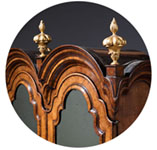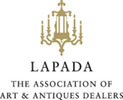A Fine William and Mary 17th-Century Olive Oyster Lace Box
Sold
Request Information
Follow Us
A Fine William and Mary 17th-Century Olive Oyster Lace Box
A Fine Late 17th Century Olive Oyster ‘Lace Box’ of Small Proportions. Circa 1680-1690 England.
The cross-grain moulded and holly banded top is finely veneered in hand-cut pieces of olive cut horizontally, known as ‘olive oyster veneering’. A roundel using this technique is placed in the centre of the top, bordered with a line stringing of holly, a further outer ring of oysters is also line strung and four large oysters sit to each corner. Raised on its original slot hinges, the cleated top appears to retain the original red japanned interior as does the base.
Similarly, the cross-grain moulded frieze is veneered in olive to the sides and face but, this time, hand-cut sections of figured olive. The back is veneered in lacewood. Raised on its original slot hinges the cleated top appears to retain the original red japanned interior as does the base.
Condition
Good. Wear consistent with age and use. Truly outstanding and original. Lovely colour and patination throughout.
Dimensions
Height: 3.15 in. (8 cm)
Width: 11.82 in. (30 cm)
Depth: 9.85 in. (25 cm)
PREVIOUSLY SOLD
No Results Found
The page you requested could not be found. Try refining your search, or use the navigation above to locate the post.
No Results Found
The page you requested could not be found. Try refining your search, or use the navigation above to locate the post.
YOU MAY ALSO LIKE
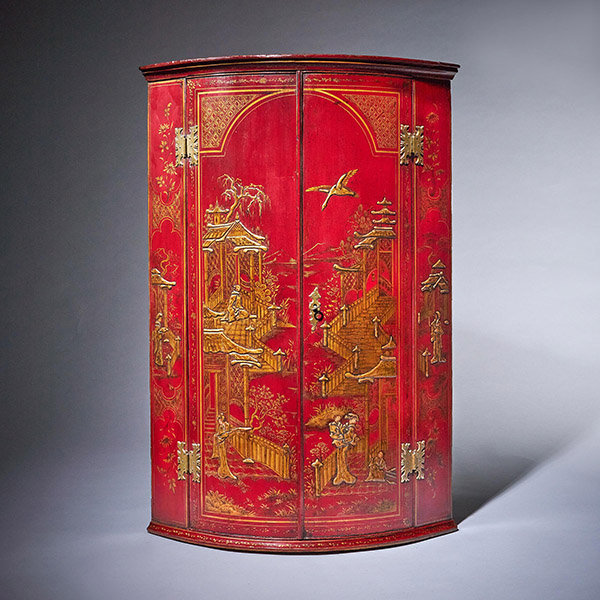
18th Century George II Scarlet-Red Japanned Corner Cupboard Att. Giles Grendey
18th Century George II Scarlet/Red Japanned Corner Cupboard, Att. Giles Grendey Follow Us18th Century George II Scarlet/Red Japanned Corner Cupboard, Att. Giles Grendey A fine and rare early 18th century George II scarlet japanned chinoiserie...
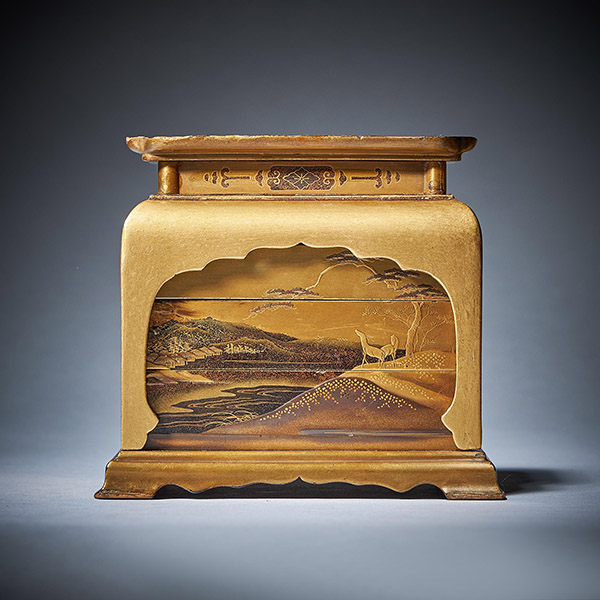
Signed Mid 19th C. Edo/Meiji Period Diminutive Lacquer Stacking Cabinet, Japan
Signed Mid 19th C. Edo/Meiji Period Diminutive Lacquer Stacking Cabinet, Japan £5,800Follow UsSigned Mid 19th C. Edo/Meiji Period Diminutive Lacquer Stacking Cabinet, Japan The highly decorated tray in the form of a table frames a series of...
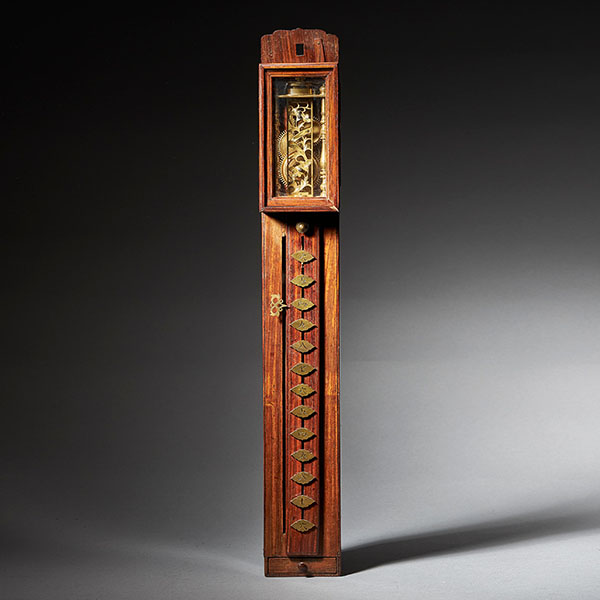
Late Edo Period 19th Century Japanese Pillar Clock, Shaku-Dokei, C. 1820
Late Edo Period 19th Century Japanese Pillar Clock, Shaku-Dokei, C. 1820 £6,500Follow UsLate Edo Period 19th Century Japanese Pillar Clock, Shaku-Dokei, C. 1820 ELEGANT JAPANESE PILLAR CLOCK, 'SHAKU-DOKEI', c. 1820 The very fine 30-hour,...
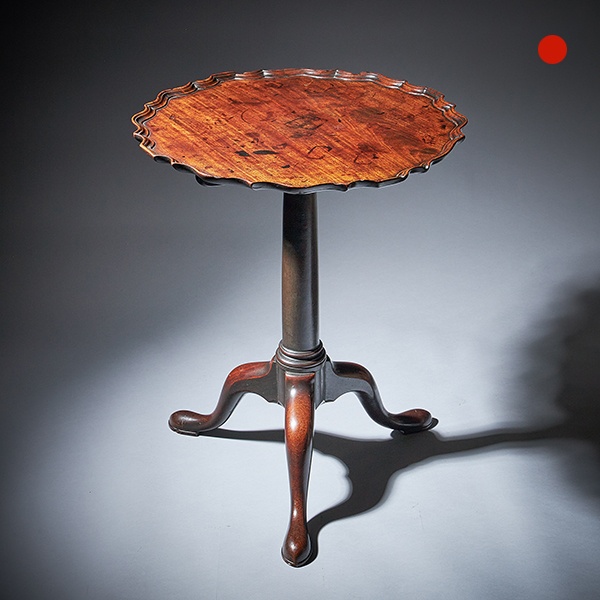
George II Gun Barrel Mahogany Tripod Table, circa 1740-1750
George II Gun Barrel Mahogany Tripod Table, circa 1740-1750 SoldFollow UsGeorge II Gun Barrel Mahogany Tripod Table, circa 1740-1750 George II Gun Barrel Mahogany Tripod table. The well-figured top has a pie crust edge, resting on a gun...
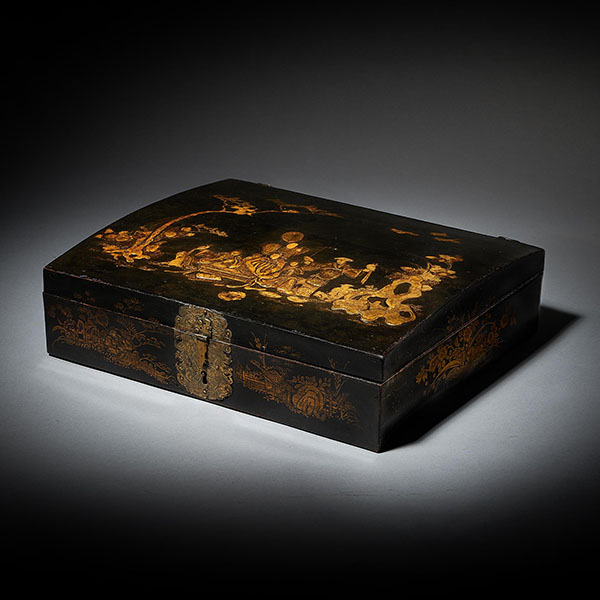
18th Century George I Domed Topped Japanned Chinoiserie Falconry Box
18th Century George I Domed Topped Japanned Chinoiserie Falconry Box, circa 1710 £3,900Follow Us18th Century George I Domed Topped Japanned Chinoiserie Falconry Box, circa 1710 A rare and important Queen Anne - George I japanned chinoiserie...
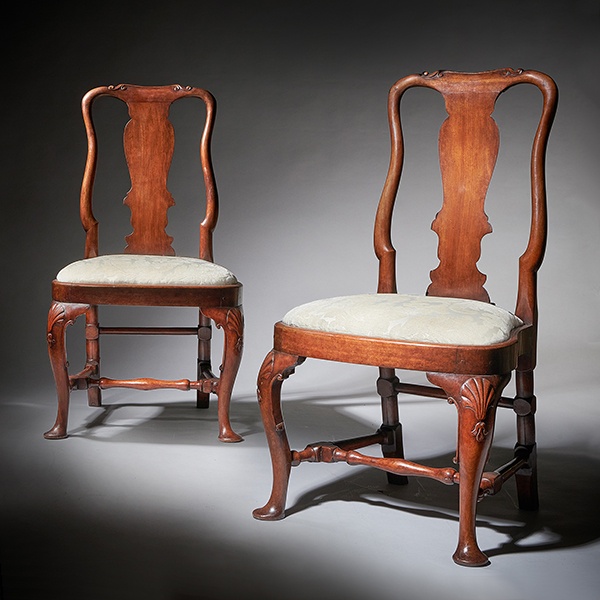
Pair of George I 18th Century Carved Mahogany Chairs, Circa 1720
Pair of George I 18th Century Carved Mahogany Chairs, Circa 1720 £4,400Follow UsPair of George I 18th Century Carved Mahogany Chairs, Circa 1720 A superb pair of early 18th-century carved George I mahogany chairs, circa 1720. Each chair is of...

18th Century George II Scarlet-Red Japanned Corner Cupboard Att. Giles Grendey
18th Century George II Scarlet/Red Japanned Corner Cupboard, Att. Giles Grendey Follow Us18th Century George II Scarlet/Red Japanned Corner Cupboard, Att. Giles Grendey A fine and rare early 18th century George II scarlet japanned chinoiserie...

Signed Mid 19th C. Edo/Meiji Period Diminutive Lacquer Stacking Cabinet, Japan
Signed Mid 19th C. Edo/Meiji Period Diminutive Lacquer Stacking Cabinet, Japan £5,800Follow UsSigned Mid 19th C. Edo/Meiji Period Diminutive Lacquer Stacking Cabinet, Japan The highly decorated tray in the form of a table frames a series of...

Late Edo Period 19th Century Japanese Pillar Clock, Shaku-Dokei, C. 1820
Late Edo Period 19th Century Japanese Pillar Clock, Shaku-Dokei, C. 1820 £6,500Follow UsLate Edo Period 19th Century Japanese Pillar Clock, Shaku-Dokei, C. 1820 ELEGANT JAPANESE PILLAR CLOCK, 'SHAKU-DOKEI', c. 1820 The very fine 30-hour,...

George II Gun Barrel Mahogany Tripod Table, circa 1740-1750
George II Gun Barrel Mahogany Tripod Table, circa 1740-1750 SoldFollow UsGeorge II Gun Barrel Mahogany Tripod Table, circa 1740-1750 George II Gun Barrel Mahogany Tripod table. The well-figured top has a pie crust edge, resting on a gun...

18th Century George I Domed Topped Japanned Chinoiserie Falconry Box
18th Century George I Domed Topped Japanned Chinoiserie Falconry Box, circa 1710 £3,900Follow Us18th Century George I Domed Topped Japanned Chinoiserie Falconry Box, circa 1710 A rare and important Queen Anne - George I japanned chinoiserie...

Pair of George I 18th Century Carved Mahogany Chairs, Circa 1720
Pair of George I 18th Century Carved Mahogany Chairs, Circa 1720 £4,400Follow UsPair of George I 18th Century Carved Mahogany Chairs, Circa 1720 A superb pair of early 18th-century carved George I mahogany chairs, circa 1720. Each chair is of...
